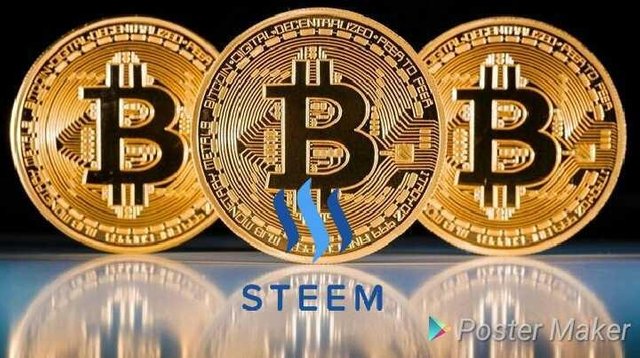'Bitcoin' HalalKah?

INTEREST is further examined especially from a legal point of view when opinions written by Brother Furqan about bitcoin mania are one of the speculative bubble phenomena. In the last paragraph of his article entitled "Bitcoin Mania, Are You the Next Victim?", Luqman advised; "Do not let for reasons of wanting rich in quick time sacrifice the rationality of your thinking and your future." (Serambi, 1/3 / 2018).
This bitcoin phenomenon has penetrated into the society of Aceh, even has become a passive income for some people of Aceh. So if not immediately found the solution of legal aspects, then feared arise feelings of anxiety by some people. Moreover, many questions that appear to the author, especially around the law interact with bitcoin about halal or prohibited.
Quoted from the Wikipedia page, bitcoin is an electronic currency created in 2009 by Satoshi Nakamoto. The name is also associated with open source software that he designed, and also uses a peer-to-peer network without centralized storage or a single administrator, in which the US Treasury calls the bitcoin of a decentralized currency.
Unlike most common currencies, bitcoin does not depend on trusting major publishers. Bitcoin uses a database that is distributed and spread to the nodes of a P2P network to a transaction journal, and uses cryptography to provide basic security functions, such as ensuring that bitcoins can only be spent by people who have them, and should not be done more from one time.
The design of bitcoin allows for anonymous ownership and transfer of wealth. Bitcoin-bitcoin can be stored on a personal computer in a wallet file format or saved by a third party wallet service.
Apart from all that, bitcoins can be sent over the internet to anyone with a bitcoin address. The peer-to-peer bitcoin topology and the lack of a single administration make it impossible for any governmental authority to manipulate the value of bitcoin-bitcoin or cause inflation by producing more bitcoin.
The law is forbidden
How does the law use or transact with beitcoin? The holder of the fatwa mandate Darul Ifta 'Misriyyah, Cairo, Egypt, after discussing and referring to the currency economist, issued a fatwa that deals with the virtual currency, especially the legal bitcoin.
The prohibition is based on several reasons: First, it has a negative impact on the economic system; Second, the disruption of market balance (where the transaction between seller and buyer) occurs; Third, the disruption of the concepts and rules of procedure of the economic activists; Fourthly, there is no legal umbrella against the user or person interacting with bitcoin, nor the money generated therefrom;
Fifth, there is no government regulation on the law interacting with bitcoin (allowed or forbidden); Sixth, the removal of government authority in finance by applying to bitcoin; Seventh, the existence of harm resulting from deception, fraud and fraud on its use, its standard and its price.
Allah's Messenger (may peace be upon him) prohibited the act of deception, "Whoever deceives the Muslims, then he is not included in the category of Muslims". Moreover, interacting with bitcoin can be a high risk to individuals and countries, whereas Shari'ah rules have "not allowed to harm others and should not be mutually harmful".
Meanwhile, Tgk H Muhammad Amin Daud (the father of Cot Trueng) argues that the transaction (muamalah) allowed by religion is a clear transaction 'aqid it (seller and buyer), the existence of mabi' (goods), as well as the benefits that directed from him. Whereas in case of transactions with bitcoin is not anchored by the buyer (anonymous), the goods traded (mabi ') are also not possessed significantly. Thus, he argues that his legal haram interacts with bitcoin. He expressed this opinion on the event mubahasah masail hadisah in one dayah in Langsa City.
A similar opinion was also made by Tgk H Nuruzzahri Samalanga (Waled Nu). According to him, unlawful conduct of transactions with bitcoin, because it is not in accordance with the rules of muamalah as regulated by syara '. So he suggested to the entire community to seek sustenance diligently and in ways that are lawful and clear source.
Sustenance generated in halal ways, according to Waled Nu, is a belief and blessing given directly by Allah SWT. Good sustenance is a sustenance that is lawful and obtained by way of trying, not generated by means of instant that is against the common sense.
Not a payment tool
Related to the virtual currency, Bank Indonesia (BI) stated that bitcoin is not a valid currency or payment instrument in Indonesia based on Law No.7 Year 2011 concerning Currencies. In addition, BI also prohibits the Provider of Payment System Services to conduct payment transaction processing using virtual currency (including bitcoin).
BI in its Press Release related bitcoin and other virtual currency stated: Taking into account Law No. 7 of Year 2011 concerning Currency and Act No.23 of 1999 which was amended several times, lastly with Law No.6 Year 2009, BI stated that bitcoin and other virtual currency is not a valid currency or payment instrument in Indonesia.
Therefore, people are encouraged to be careful of bitcoin and other virtual currency. Any risks associated with the ownership / use of bitcoin are borne by the owner / user of bitcoin and other virtual currency.
From some of the above description, such as the Egyptian fatwa institution, the opinions of the scholars, and the statement from BI, will we still believe that bitcoin is halal?
Similarly, when we interact with various social media that can generate rewards in virtual form, for example Steemit uses bitcoin facilities for processing reward or disbursement of funds. Of course, the legal aspects of Steemit need a more in-depth study of the experts in their field. Well!
Dr. Tgk. Saiful Bahri, SHI, MA. AMD. , Lhokseumawe State Polytechnic University. Email: [email protected]